Agora is professional reading journal for History teachers. Each issue provides perspectives on a particular theme, from curriculum-focused content to pedagogical practice, along with teaching strategies, classroom activities and educational resources addressing the broader History curriculum.
Reflection
Editorial
A Guide to the Australian Framework for Generative Artificial Intelligence in Schools • The federal government’s framework provides valuable guidance for History teachers about the use of generative AI in the classroom.
Artificial Intelligence and the Future of Education • In a world of increasing automation, teachers must equip students with critical thinking skills that enable them to do what AI cannot.
How Artificial Intelligence Is Redefining the Concept of Knowledge • AI is a disruptive technology that can shed light on important societal issues, such as where knowledge comes from, how it impacts thoughts, attitudes and behaviours, and how we can trust it.
‘Here, Ready or Not!’: Teaching History in an AI World • Like the internet before it, artificial intelligence is already an omnipresent force that educators must embrace to ensure that their students remain active learners who don’t relinquish their voice to automation.
The Next Word on AI in History Education • Generative AI poses ethical, legal and social risks that need to be addressed and managed by school leaders, teachers and students.
Cultivating Transferable Skills in AI-enhanced Teaching • Teaching and learning through AI individualises learning processes and streamlines workflow from lesson planning to grading.
AI Apps that Enhance History Teaching • Several AI tools can help History teachers reduce their administrative loads, adapt content for different learning needs and increase student agency and engagement.
The Question of Bias in AI Outputs • Since the internet has some questionable biases related to gender, ethnicity and social class, students need to interrogate how these are reflected by AI outputs generated.
Indigenous Considerations of the Potential Harms of Generative AI • It is integral to consider the ways in which generative artificial intelligence replicates settler-colonial violence by perpetuating misinformation and disinformation about Indigenous peoples.
Teaching the Limitations of AI as a Writing Tool • A six-week program can teach History students how to identify where AI-generated responses to essay questions fall short, and critique their own work as well.
Is the History Essay Dead? • Generative AI has changed the world, and with it our expectation of when and where summative essays can be completed, as well as when new AI-powered assessment methods should be used instead.
Creative Uses of AI for History Teachers • History teachers can use generative AI in many creative ways, including brainstorming ways to make History classes more engaging.
Revolutionising History Education: The Power of Generative AI for Teachers • Well-written prompts, customised ChatGPT settings and graphical reconstructions of open access data can unleash the full potential of AI in the History classroom.
Prompt Engineering to Harness Generative AI Tools • A simple acronym and checklist can help teachers develop prompt engineering skills to create differentiated learning tasks.
AI Tools to Enhance Teaching and Reduce Workloads • Tools like Almanack and MagicSchool can streamline lesson planning and differentiation, while Quizizz can quickly create interactive quizzes that reinforce key concepts in an engaging way.
Creating AI Characters of Historical Figures • Inworld enables students to create AI-generated characters based on historical figures, making it easier for students to connect and empathise with...

 Vol 59 No 3 2024
Vol 59 No 3 2024
 Vol 59 No 2 2024
Vol 59 No 2 2024
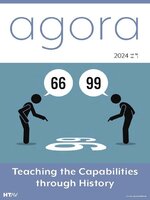 Vol 59 No 1 2024
Vol 59 No 1 2024
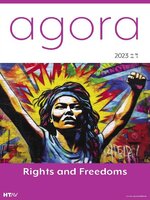 Vol. 58 no. 3 2023
Vol. 58 no. 3 2023
 Vol. 58 no. 2 2023
Vol. 58 no. 2 2023
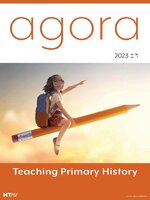 Vol. 58 no. 1 2023
Vol. 58 no. 1 2023
 Vol. 57 no. 3 2022
Vol. 57 no. 3 2022
 Vol. 57 no. 2 2022
Vol. 57 no. 2 2022
 Vol. 57 no. 1 2022
Vol. 57 no. 1 2022
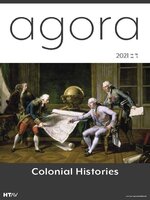 Vol. 56 no. 3 2021
Vol. 56 no. 3 2021
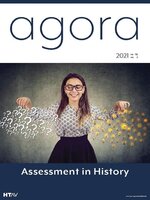 Vol. 56 no. 2 2021
Vol. 56 no. 2 2021
 Vol. 56 no. 1 2021
Vol. 56 no. 1 2021
